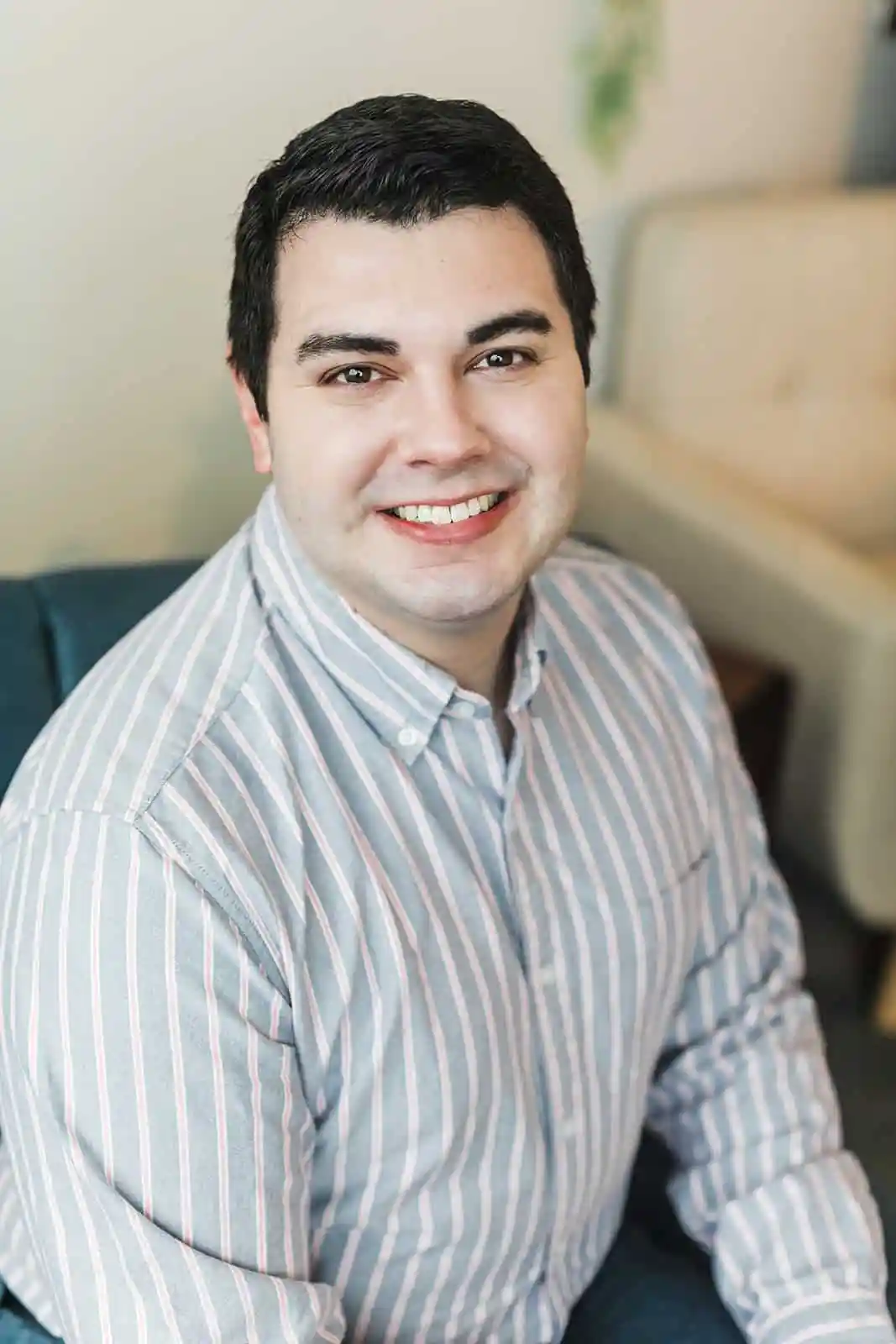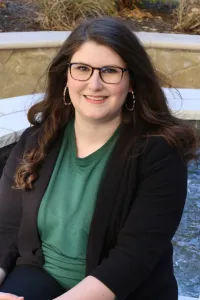Postdoctoral Fellowship
information
*Now accepting applications for the 2025-2026 training year*
Basic info
DTC opened in 2018 with the core value of providing therapeutic services from a trauma-informed perspective. Additionally, DTC aims to serve a diverse population and operates within a feminist perspective. DTC currently houses 17 therapists (including three licensed psychologist supervisors) with whom you would have opportunities to work and grow your professional identity.
Specialties of our current therapists include complex trauma, PTSD, LGBTQ+ clients and identity exploration, oppression due to marginalized identities, EMDR, as well as a variety of other clinical concerns and diagnoses. We offer a weekly consultation meeting that is open to all of our therapists, which provides a great space to learn from therapists with different specialties and theoretical orientations to enrich your practice.
This training experience will begin around mid-September (start date negotiable and dependent on license) and will extend for 12 full months. This is a W2 employee position. The pay will be based on a 50/50 revenue split with health insurance benefits and access to group dental/vision. This means we’ll cover the employer portion of federal taxes (consider this when comparing our opportunity with others that offer a 1099s.) We will also cover the cost of EMDR basic training, if desired.
DTC accepts insurance and the fellow will be expected to accept insurance through their supervisor. This position is offered to applicants who hold a doctoral degree in psychology from an APA accredited program and who have completed an APA accredited predoctoral internship prior to beginning their postdoctoral fellowship.
We are looking for fellows with a career interest in private practice and who demonstrate competence in multicultural awareness and trauma-informed care. Fellows will have relative autonomy of their schedules within the required hours for Texas postdoctoral requirements. Fellows will be expected to set a target caseload of 25 therapy sessions per week and maintain documentation through our online record-keeping system. The primary responsibility of our fellows is to provide quality psychotherapy services to clients, as well as learn the business-related aspects of running a private practice. In addition to psychotherapy, fellows will be expected to attend weekly supervision sessions and staff meetings, provide 1-hour didactic presentations twice each fall and spring semester, and maintain all required documentation of the postdoctoral experience.
What sets us apart
- A true group practice experience – therapists of various degrees of experinece and licenses who collaborate/consult and are drawn together with a foundation in multiculturally-informed and trauma-informed work
- Weekly consultation meetings that are open to all team members, providing a rich experience of diverse perspectives and theoretical orientations
- Opportunity to participate in our training program (consisting of pre-licensed professionals and practicum students) through providing didactics, attending didactics, and supervising, if desired
- Relative autonomy with your schedule (you can work evenings/weekends if you want and offer teletherapy if desired)
- Good earning potential (usually around $65k or more; it’s based on a revenue split so the more you work, the more you earn). Recent postdocs have earned between $61-74K.
- W2 employment model – this means we cover the employer portion of your payroll taxes, a portion of your medical insurance, malpractice insurance, Psychology Today profile, etc. Make sure you’re taking this into consideration when comparing with practices that offer a contractor model.
- We will cover the cost of EMDR training if you’re interested (this is a 6 day committment over two weekends with calls in between); after that you can start doing EMDR with clients. We also offer an optional biweekly EMDR consultation space for EMDR practitioners. If you’re not interested in EMDR then we’ll provide a $500 stipend toward a training of your choice.
- Easily accessible building with 24-hour security, convenient parking, grab-n-go food service, a brand new fitness center, and a pond where you can take breaks outside and refresh
- Benefit from our marketing efforts (connections in the community, strong website SEO rankings that bring in many clients, etc.)
- You’ll receive overflow referrals from our team who tends to stay pretty full
- We have a business manager/referral coordinator who will get to know you and your specialties, populations, and personality and will send you customized referrals that come directly to the practice
- In-house billing specialist to verifiy insurance, process claims, and chase down any issues with insurance reimbursement
- Learn the ins and outs of accepting insurance as a clinical provider with the support of in-house billing services
- An open-door culture where we can pop into each other’s offices when not in session
Our values
- Collaboration with like-minded practitioners
- Trauma-informed work as we understand the ways in which adverse life experiences impacts the mind, body, and spirit
- Honoring our clients’ and our own cultural identities and intersectionality and exploring how cultural identities impact experiences in life, including adversity, privilege, and marginalization
- Ethical and intentional care pursuant to the highest standards outlined in our individual ethics codes and industry standards
- On-going learning within our own fields and about how our fields can work together to enhance client care
How to apply
-
Applicants for this position are invited to submit a cover letter expressing their interest, curriculum vitae, and two letters of reference (including at least one from a predoctoral internship supervisor). You can send everything in one packet or your letters of reference can come directly from your supervisors – whatever is easier for you. Applications are due by 1/6/25. Once your application is complete, we’ll review it on a rolling basis and go from there regarding interview invitations. Please send application materials to Kathryn Keller, Ph.D. at drkeller@dallastherapycollective.com. Feel free to email Dr. Keller with any questions you might have about the fellowship.
We believe that systemic oppression exists and marginalizes people in society, including BIPOC, people from working class backgrounds, queer, and gender-expansive folx. Because we believe that these communities must be centered in the work we do, we strongly encourage applications from people with these and other marginalized identities.
Hear from Current/Previous Postdocs

Dr. Fatima Shaik
“I was initially drawn to DTC’s postdoctoral fellowship because of its client-centered, trauma-informed approach to treatment. The clinicians here are not only knowledgeable but also incredibly approachable, offering meaningful mentorship across various practice areas. One of the most rewarding parts of the fellowship has been realizing that I feel ready to begin my early career as a psychologist. DTC’s training program strikes a great balance between autonomy and support, allowing me to discover and build on my strengths in service of my clients. I’ve loved having the opportunity to work with clients and issues I’m passionate about thanks to DTC’s strong referral network. I also appreciated the encouragement to create a schedule that fits my life goals and to establish billing and communication policies that foster a supportive and professional relationship with clients. The weekly consultation space has been a fantastic opportunity for collaboration and support from clinicians with diverse therapeutic approaches. Plus, the program offers a livable wage and insurance coverage, which can be hard to find in private practice. Overall, DTC’s postdoctoral fellowship has given me a solid foundation for my future as a psychologist, and I’m truly grateful for all the experiences I’ve had along the way.”

Dr. Colton Groh
“I was drawn to DTC’s postdoctoral fellowship for its client-centered, multicultural, and trauma focused approach, which has been such a rewarding experience. The clinicians here are not only approachable but also deeply knowledgeable, offering the perfect mix of guidance and independence as I develop my skills as a psychologist. One of the most valuable parts of this fellowship has been learning about the business side of private practice, something we rarely cover in graduate school. I’ve gained essential insights into managing billing, setting professional boundaries, and building client relationships, all of which have set me up for success. I’m grateful for the flexibility to create a schedule that fits my goals and the chance to work with clients and issues I’m truly passionate about. Overall, this program has provided me with a strong foundation for my early career, and I’m excited to take these skills forward as a fully licensed psychologist.”

Dr. Latonia Wade
“I have really enjoyed my postdoc experience at DTC. I was drawn to DTC as they closely aligned with my desire for a placement that encouraged autonomy while providing a supportive environment. DTC supported my multicultural values and my commitment to trauma-informed treatment. I have been able to work with a diverse group of clients with a variety of presenting issues and cultural identities. Furthermore, I have had the opportunity to learn the business side of private practice which included insight in billing, marketing, scheduling and systems. My learning experience has been well-balanced in a way that has met my unique and individual needs. Overall, I have appreciated my postdoc experience at DTC as it has provided me with the foundation I need for a career in private practice.”

Dr. Kylie Sligar
“DTC caught my attention with their passion and commitment to culturally sensitive and trauma-informed treatment, values that are at the core of my work as a psychologist. As a postdoc, I was looking for a placement that provided a supportive environment to expand my knowledge and skills as a psychologist, while also fostering my confidence and autonomy. (And, let’s be honest- a livable wage!) Luckily, DTC has provided just that. With the autonomy I have in my schedule, I have been able to cultivate a work/life balance that aligns with my values and needs, one aspect that was missing in many other postdoc opportunities I explored. I am also grateful for the community of contractors at DTC who create a collaborative culture that is rich with diversity in experiences, perspectives, and identities. DTC also offers the unique opportunity to receive hands-on training in the business side of things at a private practice (something that I received no training on while in school). As such, I have gained valuable insight in working with insurance, billing, marketing, scheduling etc. Although not over yet, my time at DTC thus far has made me well-equipped to continue a career as a trauma-informed, private practice psychologist.”

Dr. Bethany Rothamel
“I loved my postdoc experience at DTC! Having worked predominantly in community mental health and college counseling centers during my doctoral training, I felt gratitude that my autonomy and competence were trusted and supported as I made the leap to private practice. It was important to me to find a team of clinicians that shared my social justice and multicultural values, which DTC therapists espouse. Staff’s commitment to trauma-informed care fosters a sense of trust in consultation spaces and allowed me to build upon my own skillset through deepening my awareness of the unique dynamics underlying spiritual abuse. One of my favorite aspects of the postdoc is that I was able to set my own schedule and market to clients with whom I most enjoy working. My caseload reflects a diverse clientele with a range of presenting concerns and cultural identities. Moreover, staff represent a range of unique visible and less visible identities that are respected and celebrated. I wanted a postdoc experience that honored my professional autonomy yet provided me with enriching experiences during my last year of formal training—DTC provided a wonderful balance of that.”
Apply now
If you are interested in our postdoctoral fellowship, please fill out the form below.

